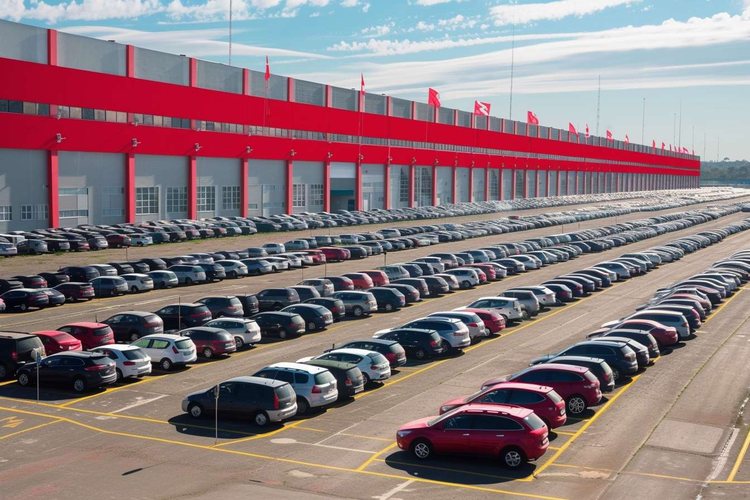A guide to secure refueling and expense control for vehicle fleets
Managing refueling for a vehicle fleet requires balancing security, accurate expense tracking, and operational efficiency. This guide explains how fuel cards, integrated payments, and telematics-driven tracking work together to reduce unauthorized use, simplify reconciliation, and provide analytics that support route planning and maintenance scheduling. It covers practical controls, compliance needs, and provider options to help fleet managers tighten fuel spend and improve uptime.

Effective fuel management goes beyond handing drivers a card at the pump. For fleets, the goal is to secure fueling transactions, control payments, and gather reliable tracking data that supports routing, maintenance, and cost allocation. A structured approach that combines card controls, telematics integration, and clear policies helps reduce fraud, improve compliance, and deliver measurable savings without disrupting daily operations.
Fueling controls and daily operations
Strong fueling controls start with limiting where and how fuel can be purchased. Fuel cards can restrict purchases by merchant category, fuel type, quantity, and time of day, reducing off-route or unauthorized transactions. Operational rules—such as requiring odometer entry or driver PINs—provide an audit trail and make reconciliation easier. Training drivers on card use and establishing clear incident reporting procedures further reduces mistakes and suspicious activity in day-to-day fueling.
Payments: reconciliation and fraud prevention
Centralized payments and statement-level controls streamline accounts payable. Fuel cards consolidate transactions by vehicle or driver, removing the need for individual receipts and reducing manual data entry. Automated alerts for unusual spending patterns—such as sudden spikes in volume or out-of-hours transactions—help detect fraud early. Pairing cards with two-factor authentication for online portals and limiting card usage windows lowers exposure to payment fraud and simplifies chargeback or dispute workflows.
Tracking fuel use and mileage reporting
Integrating card transaction data with telematics or mileage logs links liters/gallons purchased to vehicle activity. This enables verification of fuel economy, detection of fuel theft, and identification of underperforming vehicles. Regular reconciliation between pump receipts, card records, and route logs helps isolate discrepancies and supports accurate client billing or internal cost allocation. Clear tracking also aids in planning refueling stops along routes to maximize efficiency.
Security and compliance for fleet payments
Security measures should include PIN protection, driver-level limits, and merchant restrictions. Maintaining compliant records—such as receipts, odometer readings, and driver IDs—supports tax reporting and regulatory audits in many jurisdictions. Role-based access for fleet managers and auditors ensures sensitive payment data is visible only to authorized personnel. Regularly reviewing cardholder lists, revoking lost-card privileges, and rotating security credentials are simple but effective controls.
Analytics for savings and route efficiency
Fueling analytics convert transaction and telematics data into actionable insights. Dashboards can reveal idle time, route inefficiencies, and vehicles with declining fuel efficiency that might need maintenance. Benchmarking fuel spend per route, vehicle type, or driver makes it easier to set targets and measure savings initiatives. Predictive analytics can also suggest optimal refueling points along routes, reducing detours and downtime and improving overall logistics efficiency.
| Provider Name | Services Offered | Key Features/Benefits |
|---|---|---|
| WEX | Fleet payment solutions, reporting, fuel controls | Extensive merchant network, customizable controls, strong reporting integration |
| FleetCor | Fuel cards and fleet expense management | Wide acceptance, fraud monitoring, payment consolidation |
| Shell Fleet Solutions | Card acceptance at Shell stations, expense reporting tools | Large station footprint, route planning integrations, loyalty options |
| BP Business Solutions | Fleet fueling, payment services, reporting | Broad network, flexible card controls, mobile payment features |
| ExxonMobil Fleet Card | Fuel payments and reporting across Exxon sites | Reliability at major stations, integration with telematics providers |
Providers and choosing the right partner
When evaluating providers, look beyond branding to acceptance network, reporting capabilities, and integration with your existing fleet management or accounting software. Consider merchant coverage along core routes, fraud protection features, ease of replacing lost cards, and the provider’s support for telematics or API integrations. Request references from fleets with similar vehicle types and route profiles to validate real-world performance.
Maintenance, compliance, and driver policies
Combining fueling data with maintenance schedules helps spot vehicles that need service—poor fuel economy can be an early warning for engine or tire issues. Enforce consistent driver policies for logging odometer readings, reporting lost cards, and following authorized fueling locations. Keep documentation for tax and regulatory compliance, and periodically audit transactions against routes and work orders to ensure alignment with internal policies.
In summary, secure refueling and expense control for vehicle fleets depend on a blend of technical controls, operational policies, and analytics. Fuel cards that enforce purchase limits and integrate with telematics simplify payments and tracking, while analytics and routine audits drive efficiency and savings. Choosing providers with the right network coverage and integration capabilities helps align fueling operations with broader logistics and maintenance goals.






